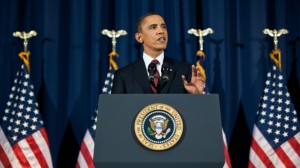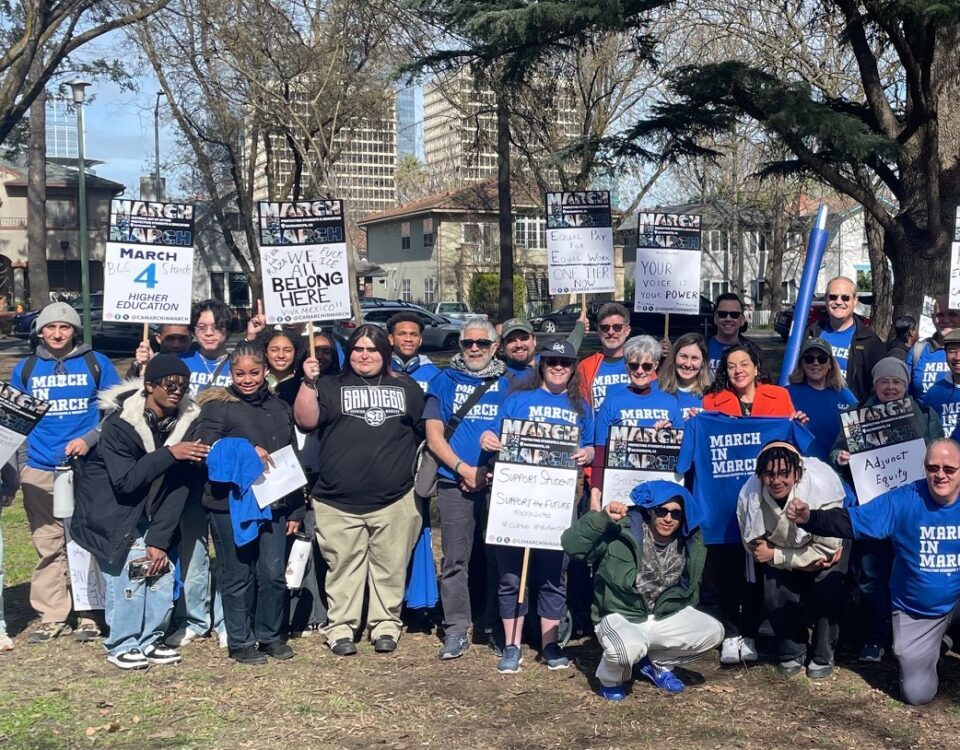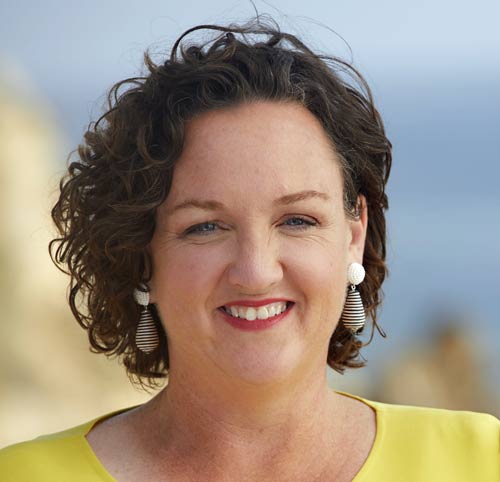
Photo: Pete Souza/White House -- President Obama addressed the nation from the National Defense University Washington, DC, March 28, 2011
U.S. military action in Libya has been in the news and on the minds of many Americans lately. Tonight President Barack Obama defended his decision to have U.S. aircraft and ships join a coalition in a push back against the rampage of Muammar Qaddafi. President Obama delivered his address from the National Defense University in Washington, DC.
PRESIDENT OBAMA: Last month, Qaddafi’s grip of fear appeared to give way to the promise of freedom. In cities and towns across the country, Libyans took to the streets to claim their basic human rights. As one Libyan said, “For the first time we finally have hope that our nightmare of 40 years will soon be over.”
Faced with this opposition, Qaddafi began attacking his people. As President, my immediate concern was the safety of our citizens, so we evacuated our embassy and all Americans who sought our assistance. Then we took a series of swift steps in a matter of days to answer Qaddafi’s aggression. We froze more than $33 billion of Qaddafi’s regime’s assets. Joining with other nations at the United Nations Security Council, we broadened our sanctions, imposed an arms embargo, and enabled Qaddafi and those around him to be held accountable for their crimes. I made it clear that Qaddafi had lost the confidence of his people and the legitimacy to lead, and I said that he needed to step down from power.
In the face of the world’s condemnation, Qaddafi chose to escalate his attacks, launching a military campaign against the Libyan people. Innocent people were targeted for killing. Hospitals and ambulances were attacked. Journalists were arrested, sexually assaulted, and killed. Supplies of food and fuel were choked off. Water for hundreds of thousands of people in Misurata was shut off. Cities and towns were shelled, mosques were destroyed, and apartment buildings reduced to rubble. Military jets and helicopter gunships were unleashed upon people who had no means to defend themselves against assaults from the air.
Confronted by this brutal repression and a looming humanitarian crisis, I ordered warships into the Mediterranean. European allies declared their willingness to commit resources to stop the killing. The Libyan opposition and the Arab League appealed to the world to save lives in Libya. And so at my direction, America led an effort with our allies at the United Nations Security Council to pass a historic resolution that authorized a no-fly zone to stop the regime’s attacks from the air, and further authorized all necessary measures to protect the Libyan people.
Ten days ago, having tried to end the violence without using force, the international community offered Qaddafi a final chance to stop his campaign of killing, or face the consequences. Rather than stand down, his forces continued their advance, bearing down on the city of Benghazi, home to nearly 700,000 men, women and children who sought their freedom from fear.
At this point, the United States and the world faced a choice. Qaddafi declared he would show “no mercy” to his own people. He compared them to rats, and threatened to go door to door to inflict punishment. In the past, we have seen him hang civilians in the streets, and kill over a thousand people in a single day. Now we saw regime forces on the outskirts of the city. We knew that if we wanted — if we waited one more day, Benghazi, a city nearly the size of Charlotte, could suffer a massacre that would have reverberated across the region and stained the conscience of the world.
It was not in our national interest to let that happen. I refused to let that happen. And so nine days ago, after consulting the bipartisan leadership of Congress, I authorized military action to stop the killing and enforce U.N. Security Council Resolution 1973.
We struck regime forces approaching Benghazi to save that city and the people within it. We hit Qaddafi’s troops in neighboring Ajdabiya, allowing the opposition to drive them out. We hit Qaddafi’s air defenses, which paved the way for a no-fly zone. We targeted tanks and military assets that had been choking off towns and cities, and we cut off much of their source of supply. And tonight, I can report that we have stopped Qaddafi’s deadly advance.
In this effort, the United States has not acted alone. Instead, we have been joined by a strong and growing coalition. This includes our closest allies -– nations like the United Kingdom, France, Canada, Denmark, Norway, Italy, Spain, Greece, and Turkey –- all of whom have fought by our sides for decades. And it includes Arab partners like Qatar and the United Arab Emirates, who have chosen to meet their responsibilities to defend the Libyan people.
To summarize, then: In just one month, the United States has worked with our international partners to mobilize a broad coalition, secure an international mandate to protect civilians, stop an advancing army, prevent a massacre, and establish a no-fly zone with our allies and partners. To lend some perspective on how rapidly this military and diplomatic response came together, when people were being brutalized in Bosnia in the 1990s, it took the international community more than a year to intervene with air power to protect civilians. It took us 31 days.
Moreover, we’ve accomplished these objectives consistent with the pledge that I made to the American people at the outset of our military operations. I said that America’s role would be limited; that we would not put ground troops into Libya; that we would focus our unique capabilities on the front end of the operation and that we would transfer responsibility to our allies and partners. Tonight, we are fulfilling that pledge.
Our most effective alliance, NATO, has taken command of the enforcement of the arms embargo and the no-fly zone. Last night, NATO decided to take on the additional responsibility of protecting Libyan civilians. This transfer from the United States to NATO will take place on Wednesday. Going forward, the lead in enforcing the no-fly zone and protecting civilians on the ground will transition to our allies and partners, and I am fully confident that our coalition will keep the pressure on Qaddafi’s remaining forces.
In that effort, the United States will play a supporting role — including intelligence, logistical support, search and rescue assistance, and capabilities to jam regime communications. Because of this transition to a broader, NATO-based coalition, the risk and cost of this operation — to our military and to American taxpayers — will be reduced significantly.
So for those who doubted our capacity to carry out this operation, I want to be clear: The United States of America has done what we said we would do.
The full text of President Obama’s address on the White House.gov website here.


